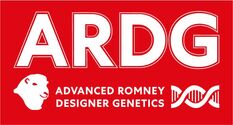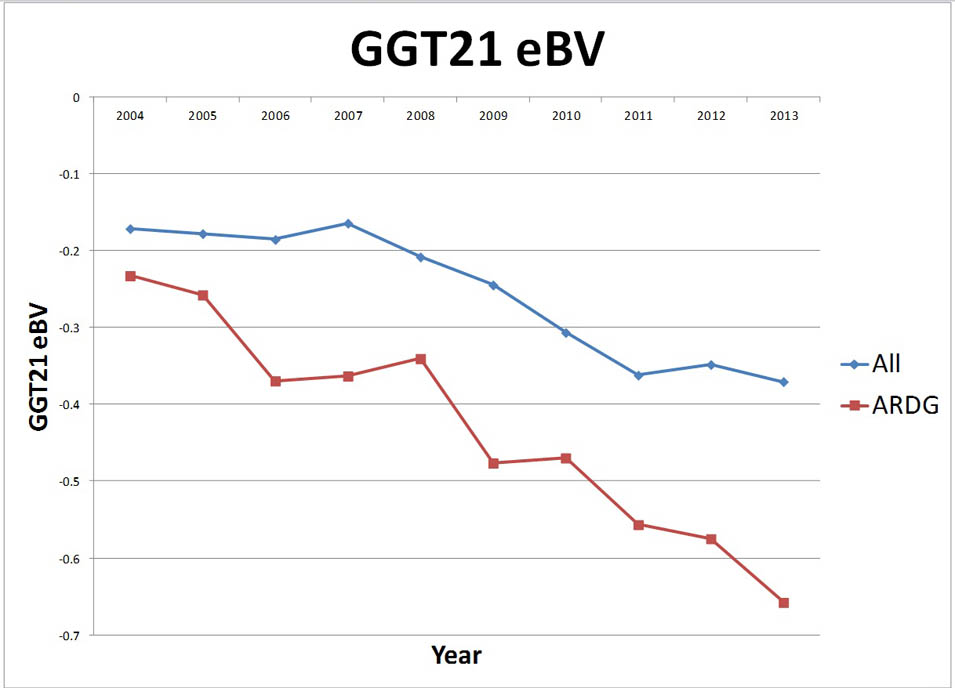Research
The ARDG has positioned itself at the forefront of research and development since its inception in 1968.
We have been performance recording from the beginning. We have also been able to gain and maintain very strong links with Ag Research. In particular we have enjoyed an association with Dr. Chris Morris, our geneticist for many years, and Mr Neville Amyes which has enabled us to be pathleaders in many of the hard to measure traits, e.g.: facial eczema, worm resilience and molecular breeding values as our flocks have been used extensively to build databases and field work for the research carried out by Ag Research.
An example of this is that a sample of blood has been taken and stored from all rams used over our recorded flocks dating back to 1968. These bloods have been used extensively by Ag Research as Dr. John McEwan has set about identifying DNA markers and will be highlighted when a marker is released sometime in the next 18 months for facial eczema.
ARDG has been actively involved in R&D for the Sheep Industry for many years. Recently, the organisation that has facilitated much of the ovine R&D in New Zealand has changed names and structure. Ovita has become Beef + Lamb NZ Genetics (BLG) and now incorporates Ovita, SIL (Sheep Improvement Ltd) and CPT (Central Progeny Test). It also has funding for Beef R&D which will be exciting for the beef industry. ARDG will continue to work with BLG and keep our ear to ground for anything that helps us produce rams that meet the needs of our ram buyers.
On reflection, ARDG has submitted a significant number of Rams for the R&D program:
We have been performance recording from the beginning. We have also been able to gain and maintain very strong links with Ag Research. In particular we have enjoyed an association with Dr. Chris Morris, our geneticist for many years, and Mr Neville Amyes which has enabled us to be pathleaders in many of the hard to measure traits, e.g.: facial eczema, worm resilience and molecular breeding values as our flocks have been used extensively to build databases and field work for the research carried out by Ag Research.
An example of this is that a sample of blood has been taken and stored from all rams used over our recorded flocks dating back to 1968. These bloods have been used extensively by Ag Research as Dr. John McEwan has set about identifying DNA markers and will be highlighted when a marker is released sometime in the next 18 months for facial eczema.
ARDG has been actively involved in R&D for the Sheep Industry for many years. Recently, the organisation that has facilitated much of the ovine R&D in New Zealand has changed names and structure. Ovita has become Beef + Lamb NZ Genetics (BLG) and now incorporates Ovita, SIL (Sheep Improvement Ltd) and CPT (Central Progeny Test). It also has funding for Beef R&D which will be exciting for the beef industry. ARDG will continue to work with BLG and keep our ear to ground for anything that helps us produce rams that meet the needs of our ram buyers.
On reflection, ARDG has submitted a significant number of Rams for the R&D program:
|
For ARDG, this R&D commitment doesn't come lightly. Each of these rams requires an individual performance recording effort for a number of traits as well as intensive recording of the progeny from these rams. All of this information is provided to BLG for them to be able to develop technologies and products for breeders like ARDG who can then turn out superior rams, year on year.
Our commitment to our ram buyers and our ability to lead the industry in important areas is perhaps best demonstrated in our Facial Eczema (FE) Tolerance breeding program. FE has been an issue in the North Island for many years and not having one eye on Facial Eczema tolerance has the potential to spell disaster in bad FE years. The chart opposite shows the trends for GGT21 eBV. |
Remembering that more negative numbers are better, the trend for GGT21 eBV of ARDG highlights the strength of the ARDG FE program, compared to the GGT21 eBV trend for ‘All' breeders in SILACE (including ARDG).
While ARDG has an emphasis on FE, we would be remiss if we didn't constantly remind ourselves of the need to produce a good all round type of ram. There is no point in driving FE as hard as possible, while taking selection pressure off other traits such as Number of Lambs Born or Meat and Growth. Achieving this balance actually becomes increasingly difficult with time.
To meet this need, ARDG turns to technology. The FE phenotyping program Ram Guard allows us to progeny test a set of young rams that we believe are good for FE. The results confirm or deny our belief's, but in the end we are able to move forward with new FE sires with confidence. In order to also select for traits other than FE however, we many need to sometimes compromise, ensuring that the new ram team as a whole has strengths across the board.
Therefore we are also using DNA testing or genomic technology to help us make informed decisions about the young rams we put forward for the Ram Guard FE phenotyping program. Sheep5K is a genomic tool delivered by Zoetis which allows us to quickly screen many of our young rams for 21 economically important traits, including FE. Sheep5K boosts the accuracy of breeding values of young animals using only an animal's DNA profile. This accurate data early in an animal's life will provide significant value in years to come meaning that we have a much better picture of an animal's potential performance before we invest in progeny tests or other phenotyping programs.
The value of genomics is best demonstrated by its influence in the USA dairy industry. Genomics was implemented over there in 2009 and some of the data appearing now is incredibly promising. BLG have suggested that we should be able to get close to a doubling in the rate of genetic gain in the NZ sheep industry by implementing genomics.
While ARDG has an emphasis on FE, we would be remiss if we didn't constantly remind ourselves of the need to produce a good all round type of ram. There is no point in driving FE as hard as possible, while taking selection pressure off other traits such as Number of Lambs Born or Meat and Growth. Achieving this balance actually becomes increasingly difficult with time.
To meet this need, ARDG turns to technology. The FE phenotyping program Ram Guard allows us to progeny test a set of young rams that we believe are good for FE. The results confirm or deny our belief's, but in the end we are able to move forward with new FE sires with confidence. In order to also select for traits other than FE however, we many need to sometimes compromise, ensuring that the new ram team as a whole has strengths across the board.
Therefore we are also using DNA testing or genomic technology to help us make informed decisions about the young rams we put forward for the Ram Guard FE phenotyping program. Sheep5K is a genomic tool delivered by Zoetis which allows us to quickly screen many of our young rams for 21 economically important traits, including FE. Sheep5K boosts the accuracy of breeding values of young animals using only an animal's DNA profile. This accurate data early in an animal's life will provide significant value in years to come meaning that we have a much better picture of an animal's potential performance before we invest in progeny tests or other phenotyping programs.
The value of genomics is best demonstrated by its influence in the USA dairy industry. Genomics was implemented over there in 2009 and some of the data appearing now is incredibly promising. BLG have suggested that we should be able to get close to a doubling in the rate of genetic gain in the NZ sheep industry by implementing genomics.


